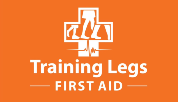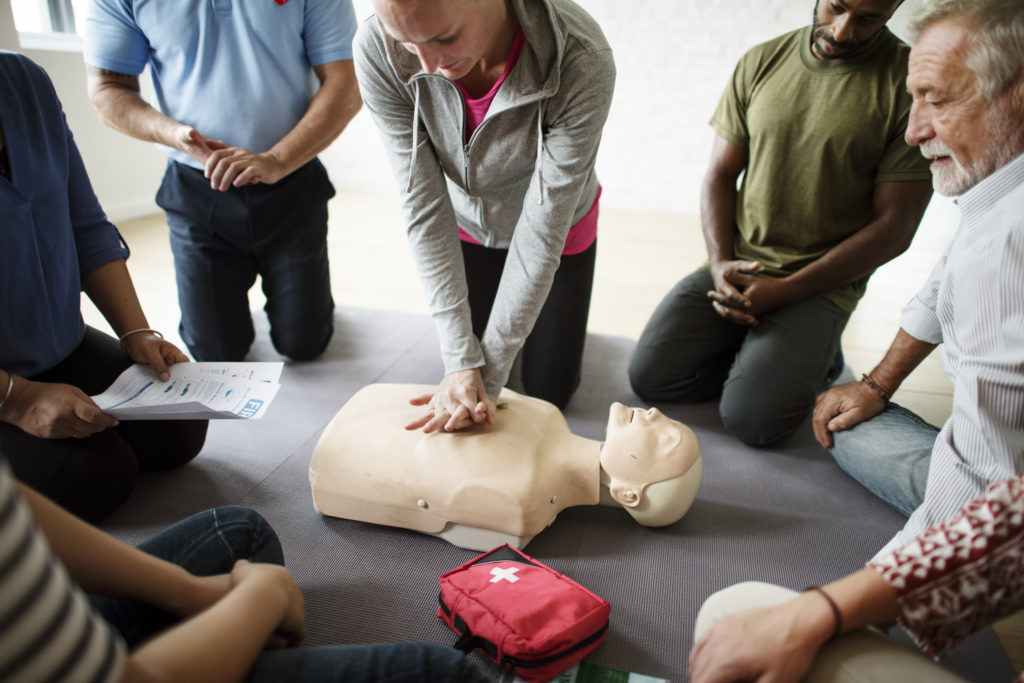As parents and caregivers, the safety and well-being of our children are of paramount importance. Accidents and emergencies can happen when we least expect them, leaving us feeling helpless and unprepared. That’s why acquiring emergency paediatric first aid training is a vital step towards ensuring our ability to respond effectively in critical situations.
In this blog post, we will explore the significance of emergency paediatric first aid training in the UK. By understanding the need, benefits, essential skills, and access to such training, we can empower ourselves with the knowledge and confidence to protect and care for our children during times of crisis. Let’s dive in!
Understanding the Need for Emergency Paediatric First Aid Training
When it comes to the safety and well-being of our children, being prepared for emergencies is crucial. Children are naturally curious and energetic, which can sometimes lead to accidents and injuries. In fact, statistics and data on child injuries in the UK highlight the alarming reality that accidents can occur at any time, in any place.
Children are particularly vulnerable during emergencies, as their bodies are still developing, and their ability to communicate their needs effectively may be limited. Immediate response and appropriate first aid measures can make a significant difference in preventing further harm and ensuring a positive outcome.
Emergency paediatric first aid training equips parents and caregivers with the knowledge and skills necessary to respond effectively during critical situations. By understanding the need for such training, we become better prepared to handle various emergencies that children may face, ranging from minor injuries to life-threatening situations.
Common types of paediatric emergencies include choking, severe bleeding, burns, fractures, allergic reactions, and febrile seizures. Without proper training, parents and caregivers may feel overwhelmed and uncertain about how to respond, potentially leading to delays in providing essential care.
By gaining a deeper understanding of the need for emergency paediatric first aid training, we can become proactive in safeguarding our children’s well-being. The ability to recognize and respond swiftly in times of crisis can mean the difference between life and death or minimising long-term consequences.
The Benefits of Emergency Paediatric First Aid Training for Parents and Caregivers in the UK
Emergency paediatric first aid training offers numerous benefits for parents and caregivers in the UK. By acquiring the necessary skills and knowledge, individuals can confidently respond to paediatric emergencies and provide immediate care to their children. Let’s explore some of the key benefits of this training:
Building confidence and competence
Emergency paediatric first aid training instil confidence in parents and caregivers, allowing them to remain calm and composed during emergencies. With knowledge of appropriate first aid techniques, they can take prompt action, potentially saving their child’s life or preventing further harm.
Recognizing and responding to life-threatening situations
Training equips individuals with the ability to identify life-threatening situations in children. They can quickly assess vital signs, recognize signs of respiratory distress or cardiac arrest, and initiate appropriate measures such as CPR (Cardiopulmonary Resuscitation).
Providing immediate care and stabilising a child’s condition
Time is critical in paediatric emergencies, and immediate care can make a significant difference. Training enables parents and caregivers to apply appropriate first aid techniques to stabilise a child’s condition, such as managing choking, controlling bleeding, or immobilising fractures, until medical professionals arrive.
Reducing the risk of complications and long-term consequences
Effective first aid can help prevent complications and minimise long-term consequences associated with injuries. By promptly addressing injuries and providing proper care, parents and caregivers can optimise the child’s chances of a full recovery and reduce the potential for lasting physical or emotional impacts.
Empowering caregivers in various settings
Paediatric first aid training benefits not only parents but also other caregivers, such as grandparents, babysitters, or teachers. It equips them with the skills to handle emergencies and ensures consistent care across different environments, providing an additional layer of safety for children.
By investing in emergency paediatric first aid training, parents and caregivers in the UK become empowered advocates for their children’s safety and well-being. They gain the confidence and ability to respond effectively in critical situations, potentially saving lives and minimising the impact of emergencies.
Essential Skills and Knowledge Covered in Emergency Paediatric First Aid Training in the UK
Emergency paediatric first aid training in the UK covers a range of essential skills and knowledge that parents and caregivers need to effectively respond to paediatric emergencies. By acquiring these skills, individuals become better prepared to handle critical situations involving children. Here are some key areas typically covered in such training:
CPR (Cardiopulmonary Resuscitation) for infants and children
CPR is a vital life-saving technique used to restore blood circulation and breathing in cases of cardiac arrest. Training teaches participants the correct methods and ratios for performing CPR on infants and children, including chest compressions and rescue breaths.
Choking response and airway obstruction management
Children are prone to choking due to their natural curiosity and tendency to explore objects with their mouths. Training covers techniques to recognize and respond to choking incidents, including performing back blows and abdominal thrusts to dislodge obstructions and clear the airway.
Dealing with severe bleeding, burns, and fractures in children
Children can sustain significant injuries, such as deep cuts, burns, and fractures. Training equips individuals with knowledge of appropriate first aid measures, such as applying direct pressure to control bleeding, cooling burns, and immobilising fractures using splints or improvised materials.
Recognizing and responding to allergic reactions and anaphylaxis
Allergic reactions, including severe cases known as anaphylaxis, can pose a serious threat to children. Training covers the identification of common allergens, recognition of allergic reactions, and administration of emergency medication, such as epinephrine auto-injectors, to manage anaphylaxis until medical help arrives.
Handling common childhood illnesses and febrile seizures
Paediatric first aid training also addresses common childhood illnesses, such as asthma attacks, seizures, and high fever-related seizures known as febrile seizures. Participants learn how to recognize the signs, provide appropriate first aid, and seek timely medical assistance.
It’s important to note that training programs may vary in terms of content and duration. However, reputable training providers typically ensure that these core skills and knowledge areas are covered comprehensively.
Accessing Emergency Paediatric First Aid Training in the UK
In the United Kingdom, there are several avenues available for individuals seeking emergency paediatric first aid training. Here are some options to consider when accessing training:
Recognized training providers and organisations
Look for reputable training providers and organisations that specialise in paediatric first aid. The most recognized and trusted providers often have courses specifically tailored to parents and caregivers. St. John Ambulance, British Red Cross, and the Royal Life Saving Society UK are examples of well-known organisations that offer paediatric first aid training.
Online training courses
Online training platforms provide a flexible and accessible way to learn emergency paediatric first aid skills. Look for accredited online courses that offer comprehensive training modules, interactive learning materials, and assessments. Ensure that the courses meet the standards and guidelines set by organisations like the Health and Safety Executive (HSE).
In-person training courses
Many training providers offer in-person courses conducted by qualified instructors. These courses typically involve practical demonstrations, hands-on practice, and the opportunity to ask questions. In-person training can provide a more immersive and interactive learning experience, allowing participants to gain confidence in their skills.
Financial assistance or subsidies
Some organisations, local authorities, or employers may offer financial assistance or subsidies for paediatric first aid training. Check with local community centres, children’s services, or your workplace to see if there are any funding options available to help cover the cost of training.
Regularly updating skills and staying informed
It’s important to stay updated on the latest guidelines and practices in paediatric first aid. Skills and knowledge can become outdated over time, so consider attending refresher courses or accessing online resources provided by reputable organisations to stay informed about any advancements or changes in protocols.
Conclusion
Emergency paediatric first aid training plays a vital role in empowering parents and caregivers in the UK. By understanding the need for this training and its benefits, individuals gain the confidence and competence to respond effectively during paediatric emergencies. Acquiring essential skills and knowledge equips them to provide immediate care, recognize life-threatening situations, and reduce the risk of complications.
If you want to sign up for an emergency paediatric first aid training programme in the UK, feel free to reach out to us for more information.

